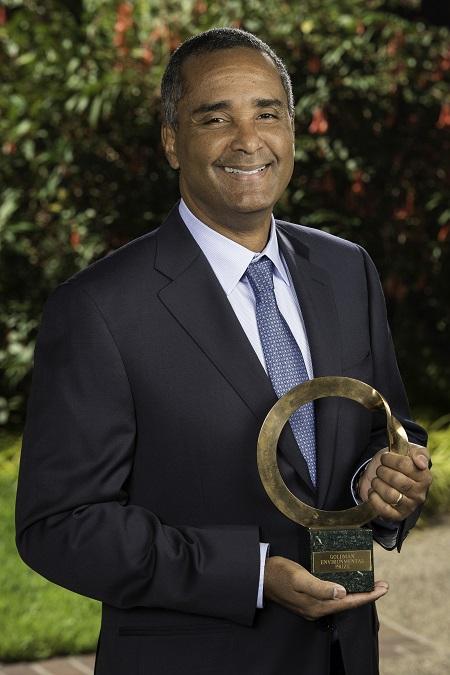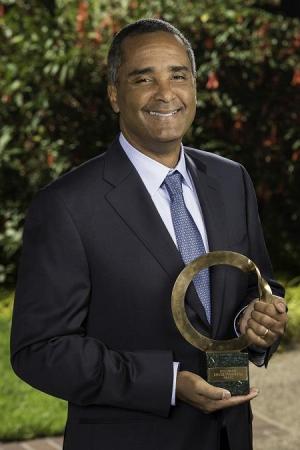Article Information
- ARTICLE_POSTED_BY: Haiti Place Staff
- ARTICLE_POSTED_ON: Jun 15, 2015
- Views : 1398
- Likes : 2
- Category : Other
- Description : <strong>In January of this year, a Haitian marine biologist won a prestigious environment activism award, the Goldman Environmental Foundation prize, for successfully carrying the battle to establish Haiti's first Marine Protected Areas. His name is Jean Wiener, the founder of Fondation pour la Protection de la Biodiversit&eacute; Marine (FoProBiM), Haiti's only organization focusing on coastal and marine areas. What is going on with Haiti's coasts and how can the situation be improved</strong>?
Overview
 Jean Wiener
Jean WienerIn April of this year, a Haitian marine biologist won a prestigious environment activism award, the Goldman Environmental Foundation prize, for successfully carrying the battle to establish Haiti's first Marine Protected Areas. His name is Jean Wiener, the founder of Fondation pour la Protection de la Biodiversité Marine (FoProBiM), Haiti's only organizationfocusing on coastal and marine areas. What is going on with Haiti's coasts and how can the situation be improved?
Some of us still remember Haiti being a green country, with clean beaches and lots of colorful fish swimming playfully in the water. This is a childhood memory that marine biologist Jean Wiener holds dear to his heart as well. It's also a dream that he fights for: to see the Haitian coasts and waters clean, protected, and full of life again.
"We need to take a stand now"
Today, there are practically no forests left in Haiti, the beaches are full of plastic debris, and overfishing has caused the fish population to diminish significantly. Fishermen have a hard time catching any fish. The mangrove trees, a habitat for young fish, are cut down for charcoal production, leaving the coast bare, with less fish and vulnerable to hurricanes.
"It's really hard to see so much marine pollution, the mangrove used for charcoal, and overfishing. Many of these resources are at risk. We really need to take a stand now, but we really should have taken the stand 50 years ago," says Wiener.
"Considering that Haiti is a Caribbean island nation with over 1800 kilometers of coastline, it is terribly underfunded in terms of the importance of education, and more importantly the importance of resource management. The coastline is without a doubt Haiti's most important resource, and yet it is virtually neglected by the government and the donors," added Wiener.
Poverty is the root of the problem
Unlike other individuals and organizations that blame people for overfishing, for cutting trees, and over-exploiting the country's natural resources in general, Jean Wiener looks deeper into the issue.
In his opinion, we cannot put all the blame on the people who fish or cut mangroves. They do it because they need to feed their families.
"If you tell a person to stop fishing or overfishing, what are you going to have them do to make a living? We have to be able to provide an option," says Wiener.
Providing an alternative
Wiener and his team are working with local communities that live near the coastline to educate and engage them in protecting the environment, and provide them with an alternative to fishing and charcoal production.
In several locations they’ve got the local community involved in replanting mangroves and developing plant nurseries. People now have the opportunity to grow and sell the plants back to the organization, and earn an income while contributing to the betterment of the environment.
Another activity promoted by FoProBiM is apiculture and the production of honey.
"In certain locations we have set up beehives, education and technical activities for some of the local communities. After they learned enough, people can take hives back to their land and have additional income from that. This is incredibly good for the environment because they produce honey. It also helps with local agriculture production because the bees are pollinating the plants in the area," said Wiener.
Wiener and his team hope that some of their projects will be replicated by other communities as well.
"It is overwhelming"
Often times this seems a never-ending battle for Wiener's team. They understand that they can only do so much, and it will take the will of many people and communities to make a real change in the state of the environment and people's lives.
"We can't provide the alternatives for everyone, but everyone does their own little part; hopefully, things can change. And yes, it is overwhelming. It is overwhelming primarily starting with the economic issues and poverty, and going all the way up to the lack of governance." said Wiener.
No development until the waste issues are solved
Wiener is convinced that Haiti cannot develop until it solves its waste issues.
"One of the things I've always known is that as long as the country cannot manage and control its waste issues, it will always have a tough problem developing and that's certainly the case for Haiti. We need to get that waste issue under control in order to move forward.
That's also linked to the development of tourism. The tourists will accept lots of things. They will accept cold showers, they will accept sleeping on the floor, they will accept no electricity, they will accept sand in the underwear, but they won't accept trash. The tourists will not accept going to the beach, or going anywhere, and seeing piles of trash and debris everywhere. If we want to develop our tourism industry we really have to get that under control,” pointed out Wiener.
A beautiful vision for Haiti
Jean Wiener envisions that one day Haiti will be a clean country, with no trash on the streets, or on the beach. He hopes to see more fish in the Haitian waters, and fishermen to be able to make a decent living. He would want to see the development of eco-tourism, and, of course, he dreams to see the seacoast back in shape.
